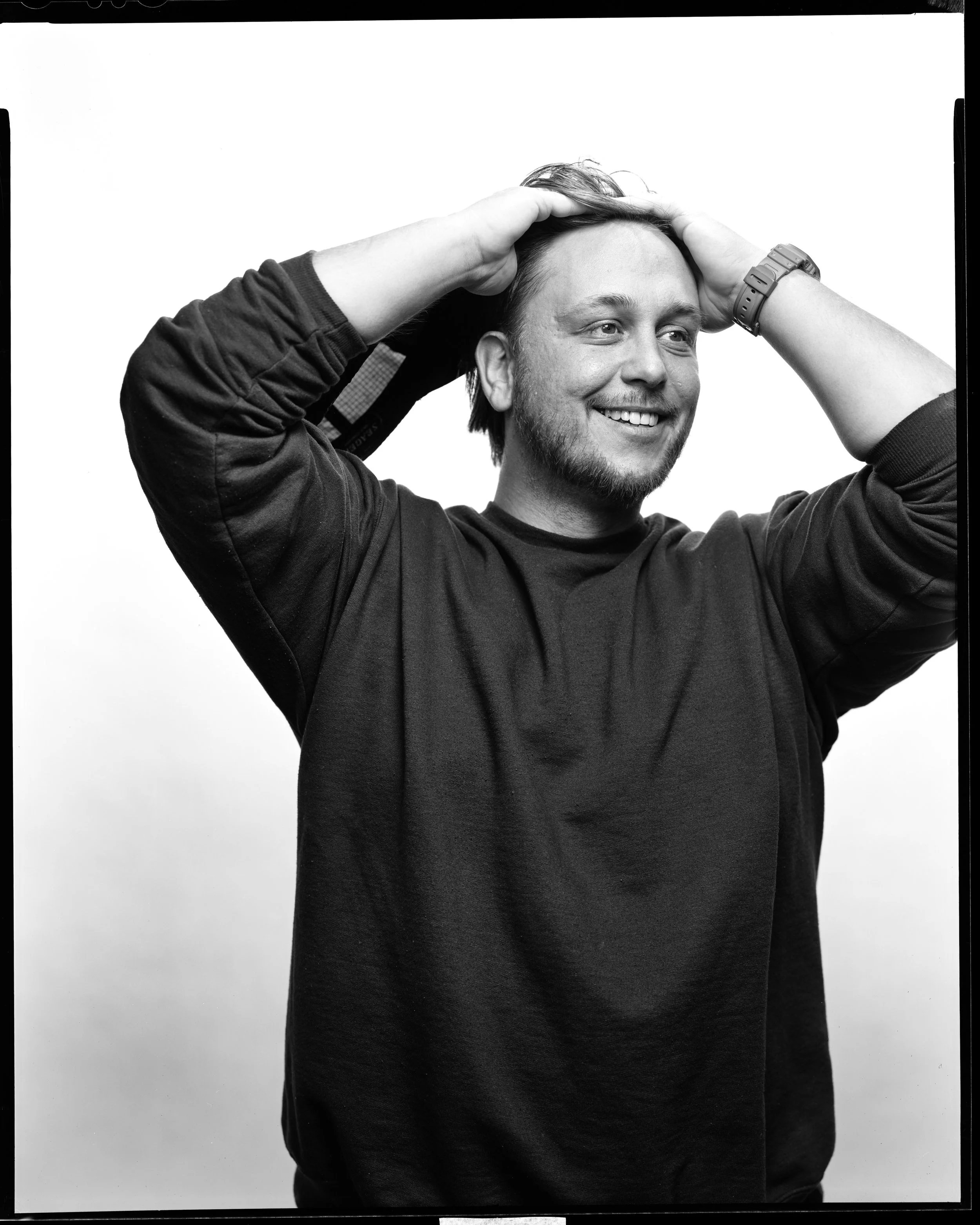I was in the studio the other day making a few portraits of my friend Robbie Maynard with the 8x10 Deardorff. I, using my internal voice, externally said “why don't I just shoot these with digital?” loud enough for Robbie to hear. Pure sarcasm, of course, but definitely something you shouldn’t say in front of a fellow film guy. The thing is, shooting with an 8x10 is hard, really hard, and I was annoyed and slightly flustered. Add in a moving subject, a person, and it becomes even harder. My frustration was totally my own fault. Just the typical fight with the camera. I was moving this knob when I should've been moving that knob…There’s so much to remember and I’m still a little new to the Deardorff. As intuitive as it is, it’s a somewhat busy camera to operate.
After the shoot was done and my friend left, I was feeling only mildly confident that I got some decent images. This feeling of self doubt is common, even among some of the most accomplished photographers. So, much like everyone else, I second guess…always. But what I was thinking about most was why I do this with such an antiquated and expensive process. The easy route would be shooting these with my forty-something megapixel Nikon. The images would be guaranteed! I could tether to the computer, see the shots right away, and make lighting adjustments on the fly. It would be sooooo much easier. But easy is not what I want. So why?
The “why” is a question I have been asked so many times that you would think I would have a scripted response at this point, but I don't. I don’t because it’s a tough thing to answer as it can be a bit of a moving target. I do love the old camera gear. It looks cool with all the machined knobs and things. I love how finicky it can be (sometimes), the nostalgia, the history, and the fact that it’s not easy. But ultimately, even though all those are contributing factors, none of those reasons are the reasons I still prefer film and large format. So while I was sitting in my crummy ikea office chair listening to the sounds of a freight train passing on the neighboring tracks, and contemplating my choices in life, I had an epiphany.
A memory popped into my head. The memory was from a bunch of years ago, of the days I was still assisting on large photoshoots. One of the photographers I worked with had a handwritten message in gaffer’s tape on his camera case. I just happened to notice it during some down time on set. The message read “ Magic not perfection.”
This simple little message has always stuck with me but I had always thought of it in the commercial sense. Strictly relating to the job of the professional photographer, it is true: perfection is not always the best thing to work toward. Capturing the moment, the story, the character of a portrait subject…seeking perfection can get in the way of that.
What I didn’t see in this message until that epiphanous moment was how it relates to my film photography. The fact that these cameras aren’t as good is the reason why they are so good.
There's no debate, modern digital cameras are better in every technical aspect: better color rendition, higher dynamic range (by a lot), better resolution with bigger and better sensors. The flaws are many with film, including the expense, the weight, the added step of processing, the colors that can be off a bit, and the fact that anything less than medium format gives you a pretty low resolution image. But film has a quality that is hard to reproduce. There’s an organic feel that seems more natural, more lifelike. Digital is hyper real, too exact. I see film as more the artistic representation than the technical perfection achieved from a digital sensor. And one other thing: you can hold your original in your hand. It’s tangible.
Just yesterday a commenter on one of my instagram posts asked why I use the old cameras. My answer was an analogy: these old film cameras are like an old tube AM radio–the warmth of the sound, the glow of the dial and the tubes illuminating the inside, and the nostalgic emotion it creates, vs listening to music on spotify in all its digital glory.
Sure, the old radio couldn't be considered Hi Fi, but it sure is magical. Just like these old cameras. In all their faults and flaws: magic, not perfection.




